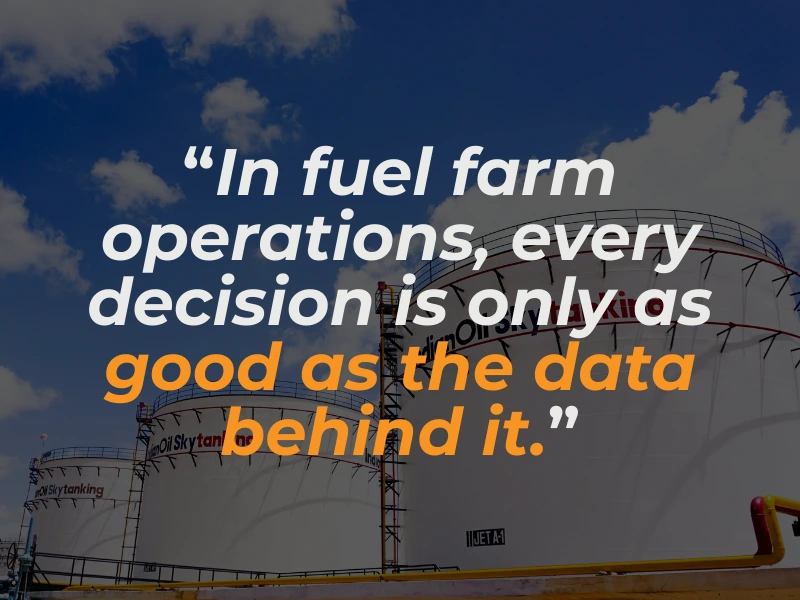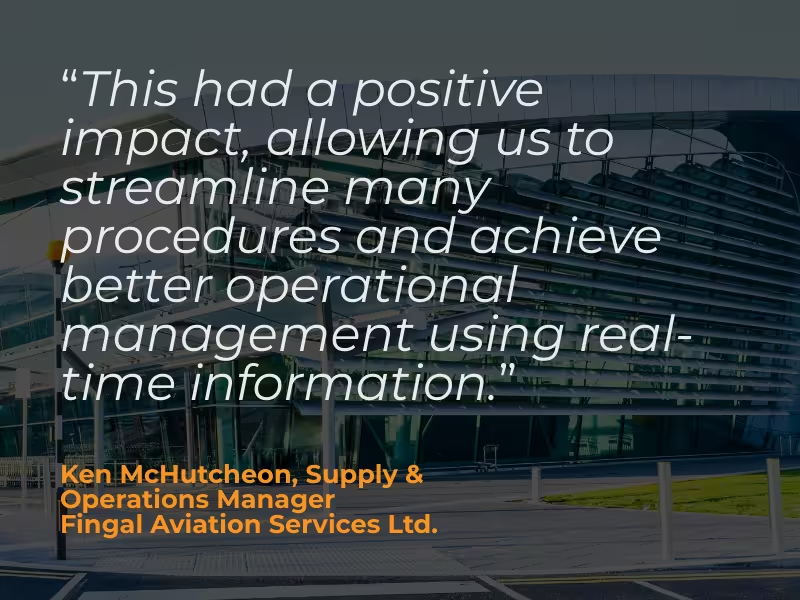
Fuel farms sit at the heart of the aviation fuel supply chain. Every litre that reaches an aircraft has passed through their tanks, meters, and records. For operators, accuracy and timeliness are non-negotiable — yet many still rely on paper logs, spreadsheets, and siloed systems to manage stock.
The problem? In a business where volumes are measured to the litre and margins are under pressure, delayed or inaccurate data can cost millions. In high-volume operations, even a small discrepancy can have a huge impact — a variance of just 0.15 % at a site dispensing 10 million litres daily means 15,000 litres lost. At current Jet-A prices, that is around $93,150 per day, or nearly $34 million annually.
“In fuel farm operations, every decision is only as good as the data behind it. Live, accurate figures are the difference between a proactive supply chain and one that’s constantly firefighting.”
— Paul Bailey, Product Manager, i6 Group

Studies show that manual entry errors and outdated systems can account for 1–3 % of total fuel volume discrepancies annually. For larger operations, that’s the equivalent of millions of dollars lost every year.
It is not just about lost product. Delayed reconciliation impacts decision-making, prevents accurate forecasting, and leaves operators exposed to compliance risks. Fuel theft, leaks, and unplanned outages are harder to detect when your visibility is days — or even weeks — behind reality. With real-time tank gauging and data automation, discrepancies and theft can be detected instantly, shifting operations from reactive to proactive.
When data lags behind reality, fuel farms face:
In today’s aviation industry, where fuel quality, traceability, and availability are under greater scrutiny than ever, these risks are not sustainable.
Digital fuel farm management platforms like Reconcile6 replace paper-based processes with:
Customs reporting integration to meet regional compliance standards without re-keying data
At Dublin and Cork airports, Fingal Aviation implemented both Fusion6 for into-plane operations and Reconcile6 for inventory management. The result was end-to-end control of fuel movements, reduced paperwork, and greater efficiency in reconciling daily stock positions.
By unifying operational and inventory data, Fingal can plan supply more effectively, balance stock across sites, and share reliable figures with stakeholders instantly.

Fuel farms are under pressure to:
Achieving this with delayed or inconsistent data is impossible.
Real-time fuel farm management is no longer a ‘nice-to-have’ — it is essential for operational integrity and commercial success.